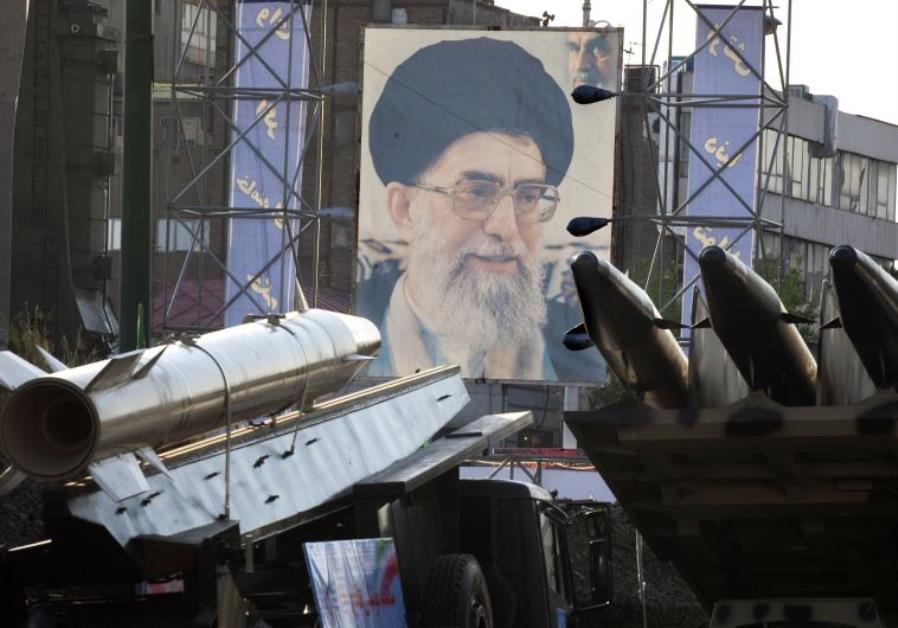Is Iran secretly developing a nuclear bomb?
Dr. Majid Rafizadeh/Arabnews/April 28/2017
Not the first time, new clandestine locations related to Iran’s nuclear program have been revealed. Tehran had previously kept secret some of its nuclear-related operations, in violation of the terms of the International Atomic Energy Agency (IAEA), which had failed several times to detect Iran’s secret military-nuclear activities. Any current clandestine nuclear activities would not only violate the IAEA terms but also the nuclear deal.
This week, critical information about Iran’s nuclear activities was disclosed by the opposition National Council for Resistance of Iran (NCRI). US President Donald Trump followed up by saying Tehran is “not living up to the spirit of the agreement.” Michael Anton, a spokesman for the White House National Security Council, said his colleagues are “carefully evaluating” the NCRI information.
The organization first revealed Iran’s clandestine nuclear activities in two major sites, Natanz and Arak, in 2000. Due to the NCRI’s connections in Iran, its information is said to have a high level of credibility. Frank Pabian, an adviser on nuclear non-proliferation matters at the Los Alamos National Laboratory, previously told the New York Times that the NCRI is “right 90 percent of the time.”
The NCRI report states: “Reliable information… shows that the ‘nerve center’ of the Iranian regime’s nuclear weapons project, responsible for designing the bomb, has been continuing its work. Following the… nuclear deal reached in 2015, not only has the unit remained in place and its activities have not subsided, but it is now clear that in some fields its activities have even expanded.”
The international community should act now, before Iran becomes a nuclear state, or else it will be too late for anyone to do anything. A nuclear bomb would ensure the survival of Iran’s clerical political establishment, the continuation of its policies and the robust advancement of its hegemonic ambitions without fear of repercussions.
The NCRI says the Research Academy in the highly protected Parchin military base is being secretly used to continue the nuclear weapons project. The location has been hidden from IAEA inspectors. “The unit responsible for conducting research and building a trigger for a nuclear weapon is called the Center for Research and Expansion of Technologies for Explosion and Impact… known by its Farsi acronym as METFAZ.”
MEFTAZ and the new location are part of Iran’s umbrella engineering unit for the nuclear weapons program, the Organization of Defensive Innovation and Research, known by its Persian acronym SPND. This unit comprises seven subdivisions. The NCRI first revealed the SPND’s existence in 2011. It was later designated by the US State Department. The SPND has many secret centers; some may have not been detected yet.
Iran has not allowed the IAEA to inspect or monitor many of its nuclear-related sites, including the SPND centers. Tehran has disguised their true nature by labeling some of them military sites or conventional research centers. During the nuclear talks, Iran was determined that Parchin be beyond IAEA inspection. Iranian generals frequently boast that the IAEA is not permitted to inspect these locations, including Parchin and its Research Academy.
The IAEA ought to thoroughly inspect all SPND centers. Interviews should be conducted with the nuclear program’s lead figures and researchers. Iran should not receive sanctions relief while pursuing its nuclear ambitions. The international community should act now, before Iran becomes a nuclear state, or else it will be too late for anyone to do anything.
A nuclear bomb would ensure the survival of Iran’s clerical political establishment, the continuation of its policies and the robust advancement of its hegemonic ambitions without fear of repercussions.
• Dr. Majid Rafizadeh is a Harvard-educated, Iranian-American political scientist. He is a leading expert on Iran and US foreign policy, a businessman and president of the International American Council. He serves on the boards of the Harvard International Review, the Harvard International Relations Council and the US-Middle East Chamber for Commerce and Business. He can be reached on Twitter @Dr_Rafizadeh.
http://www.arabnews.com/node/1091366




















